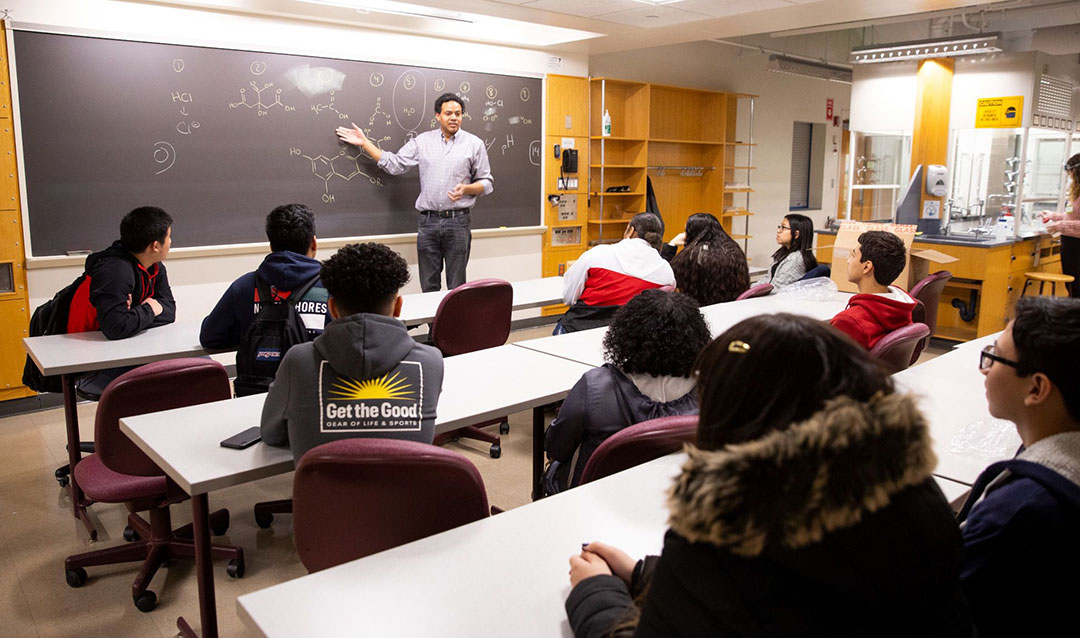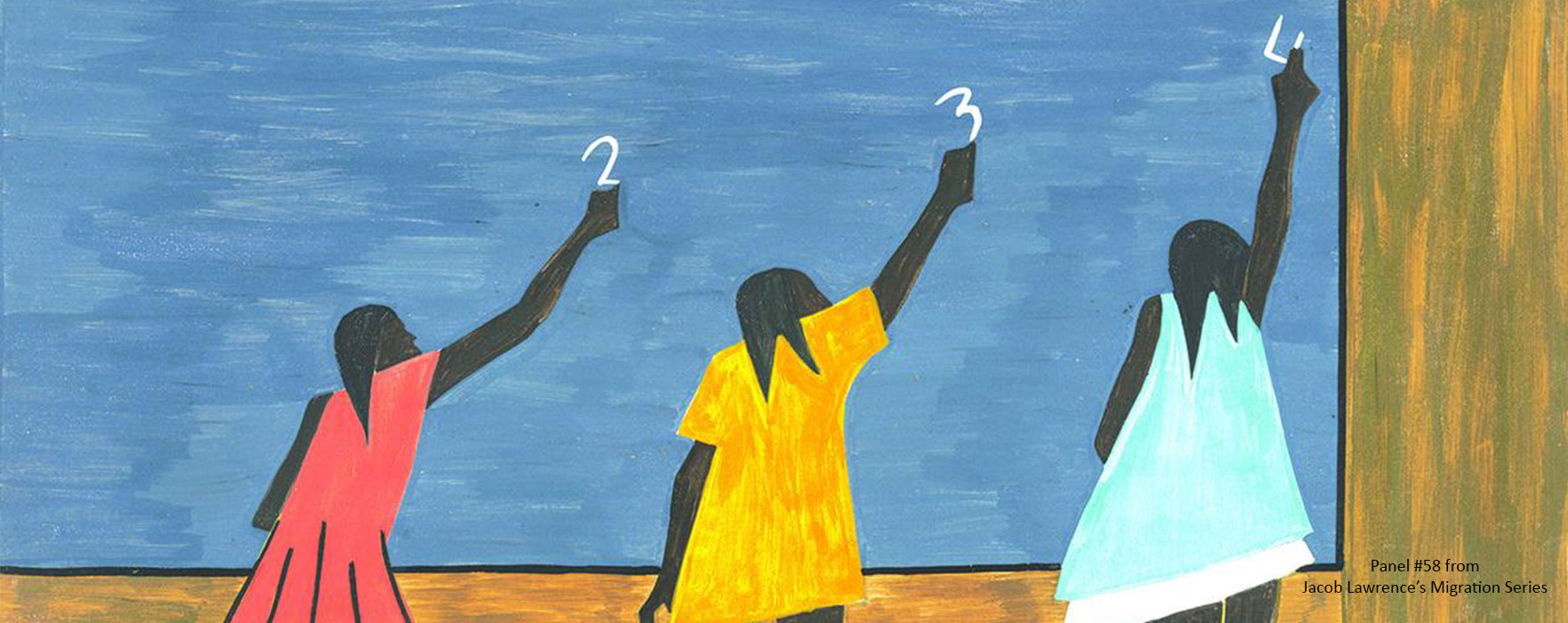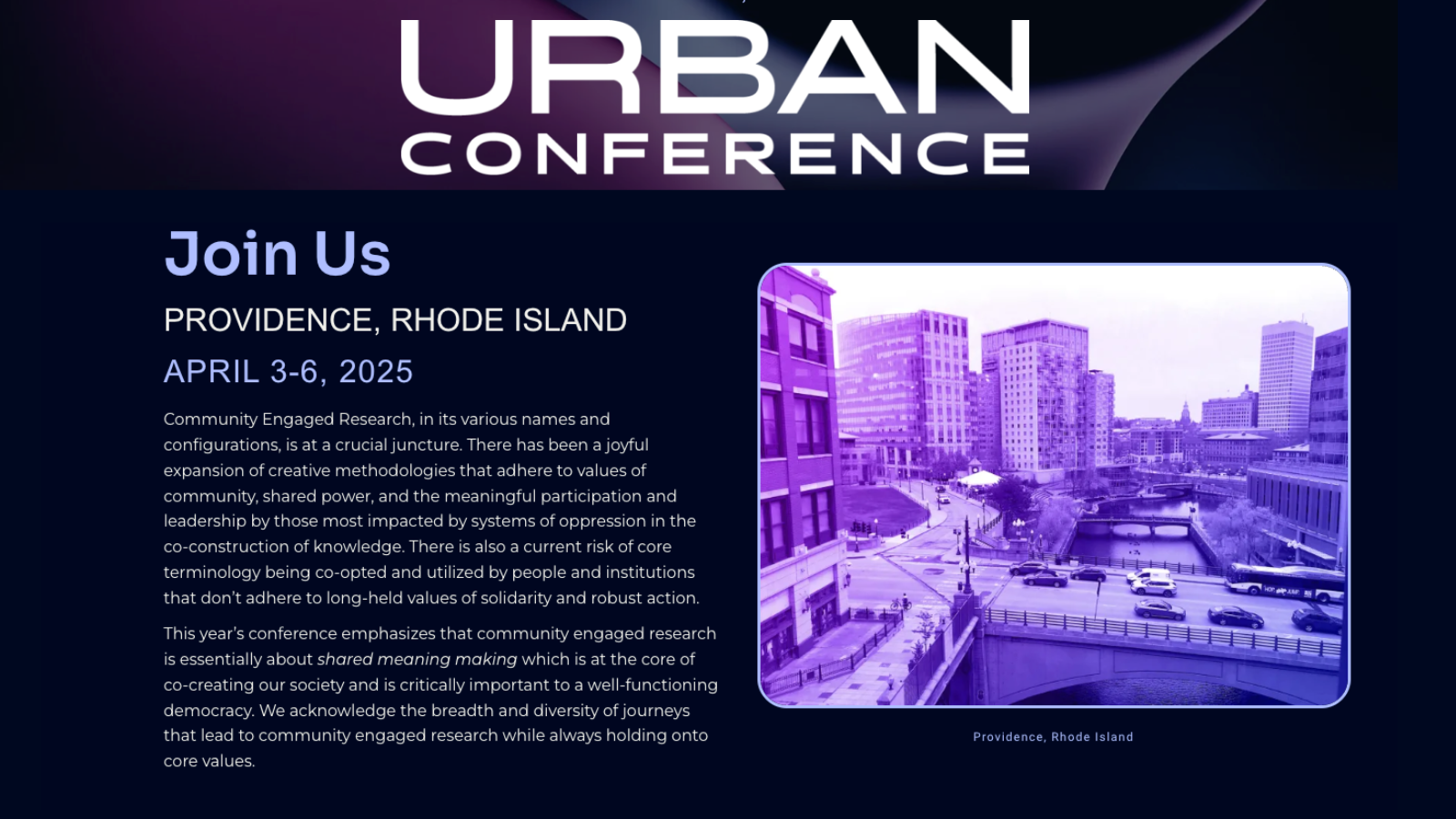The Center of Work on Race and Education at the Annenberg Institute provides an inclusive space to:
- Rethink how we interrogate race and education.
- Generate theoretically informed rigorous scholarship on the impact of race on students’ educational experiences, opportunities, and outcomes.
- Engage with and learn from a broad community invested in racial justice.
- Create a bold vision for racially just education rooted in engaged scholarship and innovative policy and practice-based efforts to challenge racial inequity.
Land Acknowledgement
Brown has developed an official land acknowledgment as part of a set of commitments to build a better understanding of the relationship between the University, the Indigenous peoples of this region, and the land on which Brown is situated.
These commitments include a formal land acknowledgment statement to recognize, honor and create a meaningful acknowledgment of the Narragansett Indian Tribe and their connection to the land on College Hill, as well as a commitment to strengthen investment in scholarship and education. Land acknowledgment often is considered as a first step in a process of truth-telling and a commitment to building understanding of, and accountability to, a history of dispossession.
"Brown University is located in Providence, Rhode Island, on lands that are within the ancestral homelands of the Narragansett Indian Tribe. We acknowledge that beginning with colonization and continuing for centuries the Narragansett Indian Tribe have been dispossessed of most of their ancestral lands in Rhode Island by the actions of individuals and institutions. We acknowledge our responsibility to understand and respond to those actions. The Narragansett Indian Tribe, whose ancestors stewarded these lands with great care, continues as a sovereign nation today. We commit to working together to honor our past and build our future with truth."
For more information about this acknowledgment, its development, and the action it is meant to inspire, please visit landacknowledgment.
Rethinking Race and Education Seminar Series
The Rethinking Race and Education Seminar provides a space to engage with evolving interdisciplinary ideas about race and education.
Upcoming Seminars
-
Sep
16Jose Eos Trinidad - How Local Organizations Shape US Education
01:00pm-02:00pm | 164 Angell St, Room 202 -
Oct
09Rethinking Race and Education SeminarRichard Welsh - Oh, Happy Day? What can we do to disrupt inequities in school discipline?
05:00pm-07:00pm |
Past Seminars
-
Feb
11EventHow Schools Make Race: Teaching Latinx Racialization in America
01:00pm-02:00pm | 164 Angell St, Room 202 -
Apr
17The YBMen Project: Supporting Young Black Men Using Social Media...and more!
01:00pm-02:30pm | Pembroke Hall, Room 305 -
Dec
12EventThe Culture Trap: Ethnic Expectations & Unequal Schooling for Black Youth
01:00pm-02:00pm | 164 Angell St, Room 202 -
Sep
26 -
Feb
16Rethinking Race and Education SeminarOdis Johnson Jr.
Critical Quantitative Methods, ICQCM Co-Director01:00pm-02:00pm | 164 Angell St., 2nd floor, Providence, RI 02906 -
Mar
21EventAffirmative Action in College Admissions: What it was, what it did, and what’s next
12:00pm-01:00pm | 164 Angell St, Room 202 -
Feb
23Rethinking Race and Education SeminarVictor Ray
Author of On Critical Race Theory04:00pm-05:30pm | 305 Pembroke Hall, 172 Meeting St, Providence, RI 02912
Co-sponsored with the Center for the Study of Race and Ethnicity in America -
Mar
22Rethinking Race and Education Seminarkihana ross
Antiblackness and Education05:30pm-07:00pm | 102 Friedman Hall, Brown University
Co-sponsored with the Brown Department of Education -
Apr
04Rethinking Race and Education SeminarMark Warren
Willful Defiance: The Movement to Dismantle the School-to-Prison Pipeline04:00pm-05:30pm | Location: 339 Eddy St, Providence, RI 02903 -
May
01Rethinking Race and Education SeminarStacey Lee
Resisting Asian American Invisibility01:00pm-02:00pm | Location: 164 Angell St., 2nd floor, Providence, RI 02906
Race and Education Workshop
The Race and Education Workshop is a space for Brown community members to engage in dialogue around vital race and education issues in an informal setting.
Race and Education Workshop Dates:
- September 24th, 12-1pm
- October 15th, 12-1pm
- November 19th, 12-1pm

Research on Race and Education
Areas of research include:
-
Race, Educational Opportunities, and Outcomes
-
Educational Leader Pathways
-
Race, Educational Leadership, and Organizational Change
-
Research Practice Partnership and Community Engaged Scholarship
-
The Relationship between Educational Organizations and their Environments
People
Faculty Leadership
Faculty
Postdoctoral Research Associates
Postdoctoral Affiliates
Graduate Students
Undergraduate Students
-

Caroline Knight
























